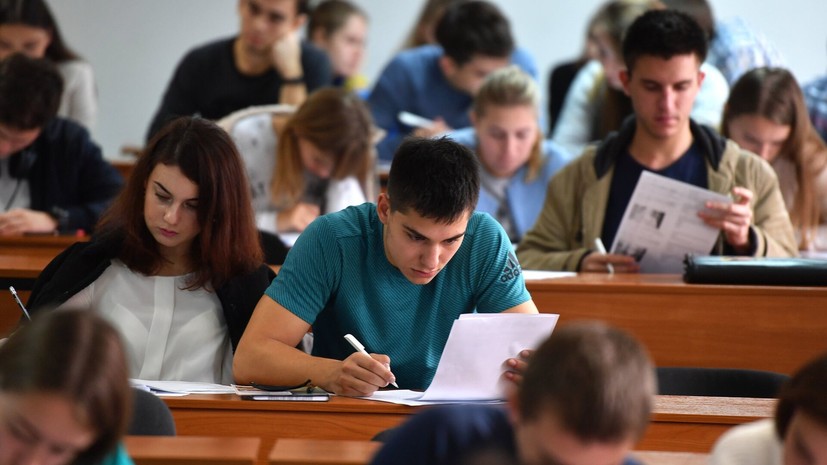Full-time and part-time students will receive a mobilization deferment from military service.
The corresponding decree was signed by Russian President Vladimir Putin.
“The deferral is granted to students studying full-time and part-time forms of education in state-accredited educational programs of secondary vocational and higher education in state educational organizations, in scientific organizations and receiving education at the appropriate level for the first time,” the press service indicates.
The head of state also signed the federal law "On Amendments to the Criminal Code of the Russian Federation and Article 151 of the Criminal Procedure Code of the Russian Federation."
The amendments introduce new concepts into the Criminal Code - "mobilization", "martial law" and "wartime", and also toughen the punishment for unauthorized leaving the place of service or failure to appear on conscription, as well as desertion.
Moreover, the mobilized reservists will bear criminal liability for these crimes on an equal basis with contract servicemen.
So, for unauthorized abandonment of a unit or failure to appear for military service during the period of mobilization and martial law, a citizen faces up to ten years in prison.
The term of punishment depends, among other things, on the number of days during which the conscript did not appear in the military unit.
Voluntary surrender will face from three to ten years in prison if the investigation did not find signs of treason in the actions of the suspect.
At the same time, the text of the amendments states that a serviceman who voluntarily surrendered for the first time can be released from punishment if “he took measures for his release, returned to his unit or place of service and did not commit other crimes."
At the same time, the commission of crimes during the period of “mobilization”, “martial law” and “wartime” is an aggravating circumstance.
In the previous edition, such aggravating circumstances included the commission of crimes only during hostilities or armed conflict.
New article
In addition, the amendments introduce a new article 356.1 “Looting” into the Criminal Code.
This offense is punishable by up to 15 years in prison.
Looting on an especially large scale, committed by an organized group and combined with the threat of murder or causing grievous bodily harm, will be punished most severely.
An especially large size means property worth more than 1 million rubles, the new edition notes.
According to the new amendments, liability for failure to comply with the order of the commander is tougher - imprisonment from two to three years.
For resisting the chief of military service or forcing him to violate his own military duties, a term of five to 15 years will be threatened.
A similar punishment will follow for those whom the court finds guilty of violence against the commander during the period of mobilization or in wartime.
The amendments also apply to articles that deal with the destruction and damage of military property.
Now these crimes are punishable by imprisonment for a term of five to ten years.
If a serviceman has lost military property due to negligence and this caused serious consequences, he faces up to seven years in prison.
It also introduces criminal liability for crimes in the defense industry.
So, for repeated violation of the terms of the contract under the state defense order, a punishment of four to eight years in prison threatens.
If the damage from such a crime exceeded 5 million rubles, then the punishment could be up to ten years in prison.
The federal law on amendments to the Criminal Code is published on the official Internet portal of legal information.
The State Duma deputies approved the bill in the second and third readings on September 20, the next day it was approved by the Federation Council.
In addition to changes to the Criminal Code of the Russian Federation, on September 24, Vladimir Putin also signed a federal law that makes it easier for foreigners serving in the army under contract to obtain Russian citizenship.
According to the new rules, foreigners who have entered into a military contract for a period of at least a year will be able to apply for a Russian passport.
At the same time, in order to obtain citizenship, they will not need to provide a residence permit and live in Russia continuously for five years.
Previously, foreigners could conclude a military contract in Russia for a period of at least five years.
On September 21, Vladimir Putin announced a partial mobilization to achieve the goals of a special operation in the Donbass.
According to the statement of the Ministry of Defense, first of all, people who have the necessary military specialties (their specific list is not disclosed) and also have combat experience will be drafted into the army first.
Defense Minister Sergei Shoigu stressed that it is planned to mobilize about 300,000 reservists, which is about 1% of Russia's total mobilization resource.

